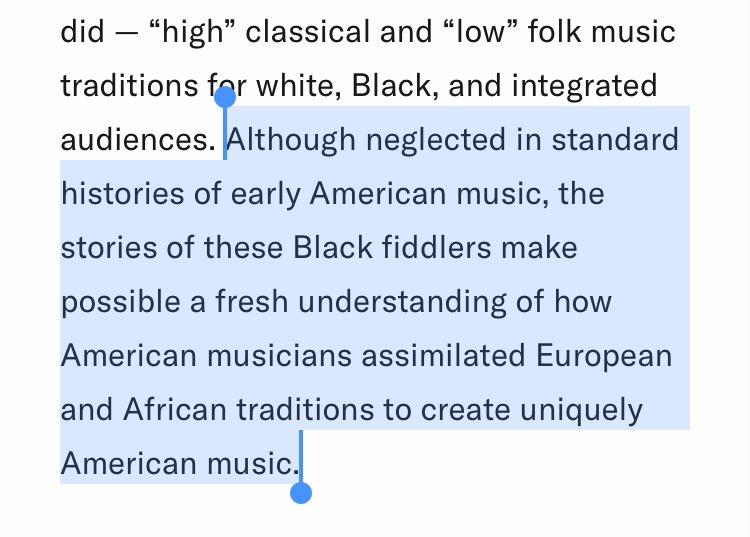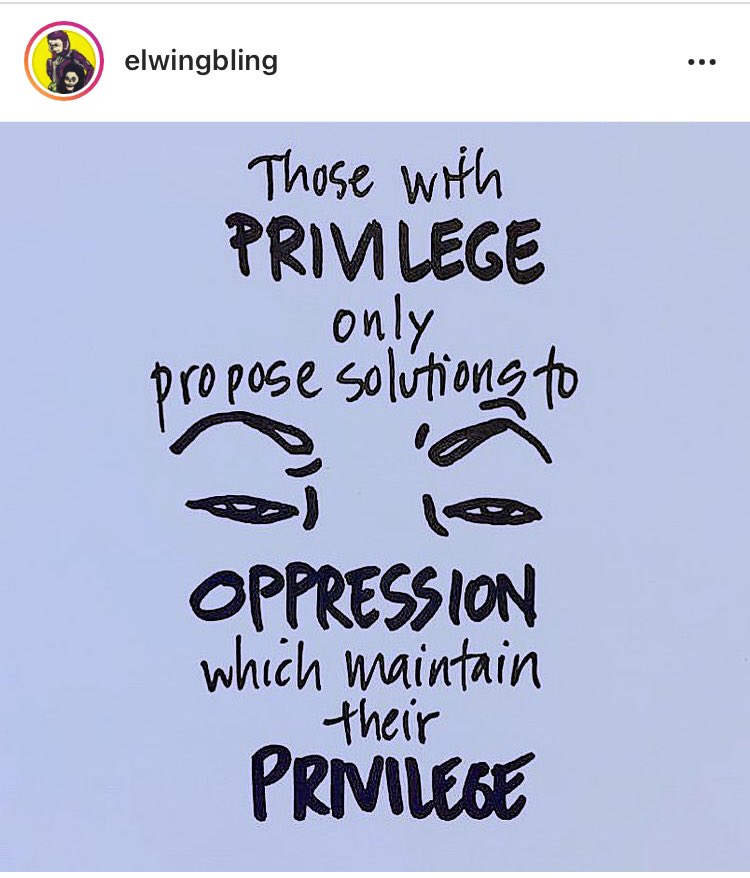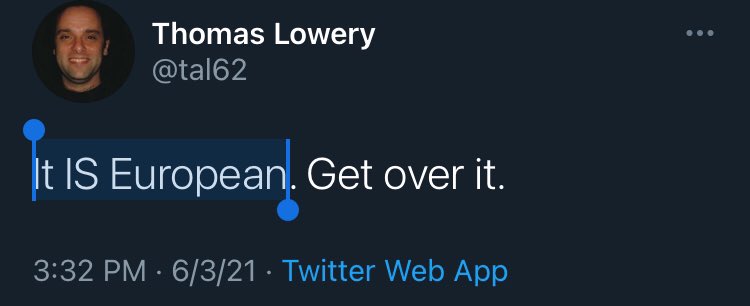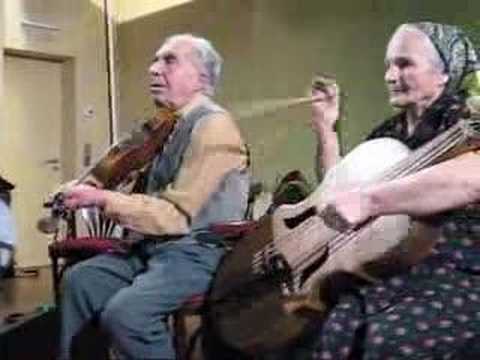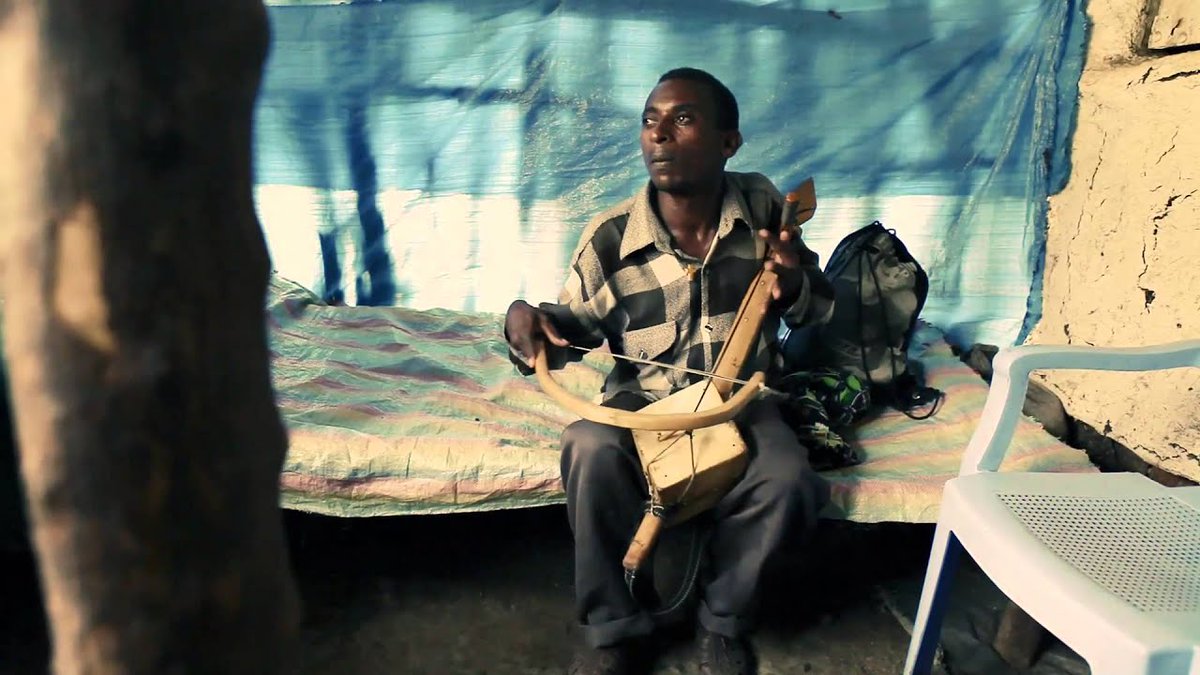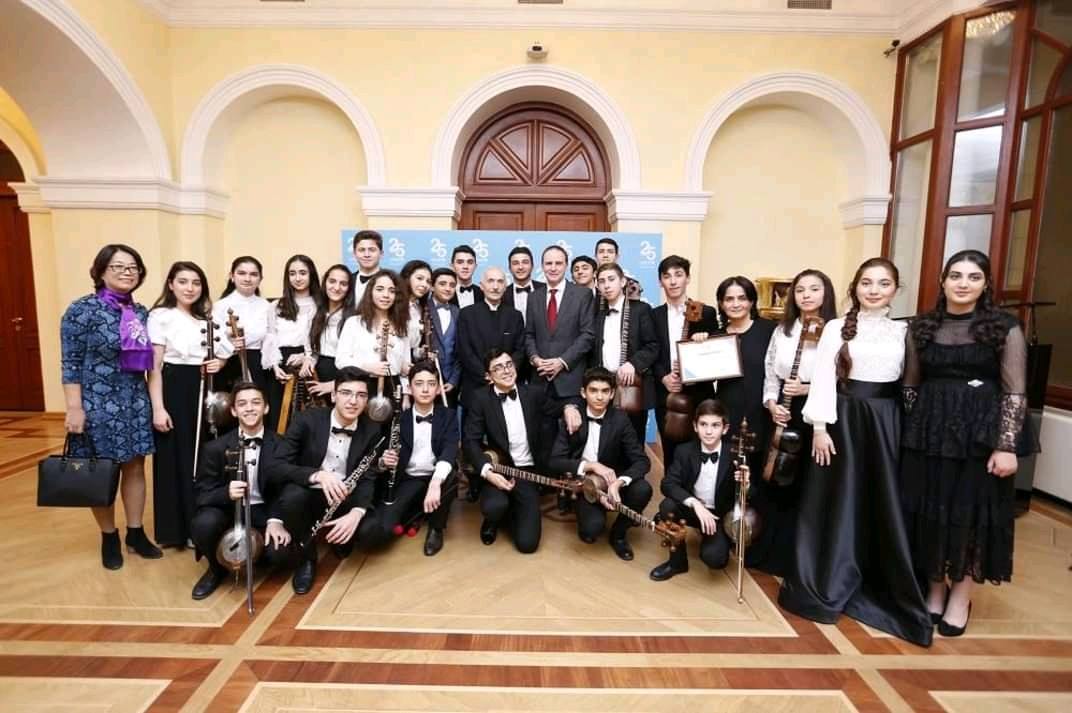
Jon Silpayamanant (โจนาทาน ศิลปยามานันท์)| Mae Mai
16 Jun,
26 tweets, 10 min read
Reading Dr. Jacqueline Cogdell DjeDje's "The (Mis)Representation of African American Music: The Role of the Fiddle" again because it's so good and I can't wait for her book on African American Fiddling to come out.
#CiteBlackWomen
cambridge.org/core/journals/…
#CiteBlackWomen
cambridge.org/core/journals/…
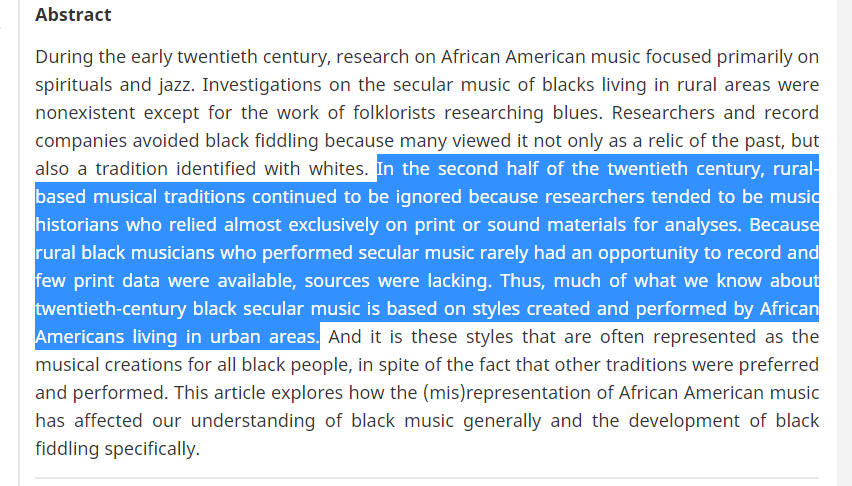
And part of that highlighted quote: "rural-based musical traditions continued to be ignored because researchers tended to be music historians who relied almost exclusively on print or sound materials for analyses." rings so true in light of the Decolonizing DAW discussion.
Representation matters, but as Dr. DjeDje says, how that representation happens (and what's excluded) matters especially when we're talking about skills that are invisible to the criteria of traditional music programs like Black fiddling traditions.
signifyingscriptures.org/an-interview-w…
signifyingscriptures.org/an-interview-w…

This also impacts how we view the histories of those excluded traditions and what gets erased from those histories due to intersecting prejudices such as the connection to West African Islamic cultures and the musical practices of Muslim slaves.
https://twitter.com/Silpayamanant/status/1322360301833101312?s=20
Which is all just a variation on a theme that's repeated throughout the field of music history and replicated in the modern academy.
https://twitter.com/Silpayamanant/status/1377960347575930880
And how that exclusion impacts Black and Arab women composers who more regularly appear in Arabic Music histories more than European women appear in Western music histories.
https://twitter.com/Silpayamanant/status/1378289942904901632
Everyone should watch this documentary on the legendary North Carolina fiddler, Joe Thompson (1918-2021).
The Life and Times of Joe Thompson (2004)
folkstreams.net/film-detail.ph…
The Life and Times of Joe Thompson (2004)
folkstreams.net/film-detail.ph…
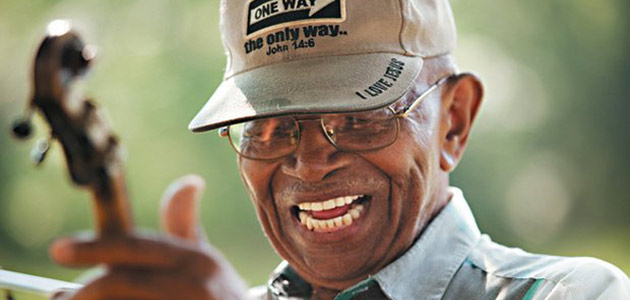
Awesome video of Joe Thompson and the Carolina Chocolate Drops! Two generations together--and Rhiannon Giddens is currently the new Silk Road ensemble director taking the reins from Yo-Yo Ma.
And Giddens' "Omar" opera based on Muslim slave, Omar Ibn Said, and his autobiography written while a slave in Arabic will finally get its premiere in 2022 (cancelled in 2020 due to pandemic)!
spoletousa.org/a-world-premie…
spoletousa.org/a-world-premie…

Fiddling as an Avenue of Black-White Musical Interchange
doi.org/10.2307/3593212
doi.org/10.2307/3593212
"Sound Studies is often accused of being a presentist enterprise, too fascinated with digital technologies and altogether too wed to the history of sound recording."
soundstudiesblog.com/2013/12/16/114…
soundstudiesblog.com/2013/12/16/114…
And this part of Dr. DjeDje's interview abt her daughter learning the violin really says a lot about how we essentialize race to music and musical styles/genres. 

So will be updating the "Islam, African American Fiddling, and the Blues" reflist/bib with a number these pieces above.
https://twitter.com/Silpayamanant/status/1326165496157368320
Which adds another dimension to the decolonising DAW debate since if the purpose of including that in the curriculum is to empower groups that are associated with that kind of music making, then how much have we essentialized tying DAW with race?
https://twitter.com/Silpayamanant/status/1404803393126809604
Which makes a kind of sense, if (non-Black) music researchers have consistently ignored rural-based music traditions, those will hardly become the focus of curricular choices by current music educators.
https://twitter.com/Silpayamanant/status/1405021453389533185
Also essential reading as a counterpoint to this discussion is historian of old time Black music and musician Tony Thomas' "Why Black Folks Don't Fiddle"
bluegrasswest.com/ideas/why_blac…
berkeleyoldtimemusic.org/tony-thomas-bio
bluegrasswest.com/ideas/why_blac…
berkeleyoldtimemusic.org/tony-thomas-bio
And Black fiddle traditions in early commercial country music.
birthplaceofcountrymusic.org/pick-5-black-f…
birthplaceofcountrymusic.org/pick-5-black-f…
Dr. DjeDje speaking truth!
"So even when there were black fiddlers in North America during the slave era, the people who wrote about them didn't think the fiddle was something that represented Africa... It was only...percussion they regarded as African."
folkworks.org/fiddling-in-we…
"So even when there were black fiddlers in North America during the slave era, the people who wrote about them didn't think the fiddle was something that represented Africa... It was only...percussion they regarded as African."
folkworks.org/fiddling-in-we…
And of course, going back to the connection between Blues, Black fiddling, and Islam/Arabic Music, which DjeDje has commented on directly in other places, this quote below.
folkworks.org/fiddling-in-we…
folkworks.org/fiddling-in-we…

The Afro-American Fiddler - Theresa Jenoure.
Originally from 1981 in Contributions in Black Studies: A Journal of African and Afro-American Studies 5, no. 2
scholarworks.umass.edu/cibs/vol5/iss1…
Originally from 1981 in Contributions in Black Studies: A Journal of African and Afro-American Studies 5, no. 2
scholarworks.umass.edu/cibs/vol5/iss1…
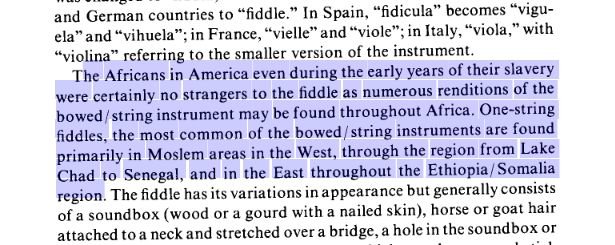
The Musical and Cultural Roots of Louisiana Creole and Zydeco Fiddle Tradition - D ‘Jalma Garnier
louisianafolklife.org/LT/Articles_Es…
louisianafolklife.org/LT/Articles_Es…

"The Outstanding, yet Oppressed Fiddler: The Importance of the Fiddle in African Folk Music"
blackmusicscholar.com/the-outstandin…
blackmusicscholar.com/the-outstandin…
• • •
Missing some Tweet in this thread? You can try to
force a refresh

